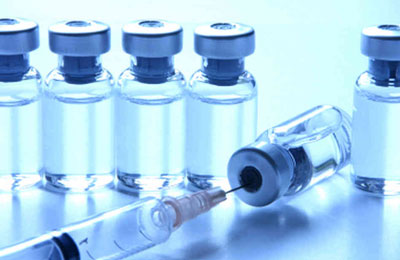
Chikungunya vaccine hopes
Vienna, Austria, November 7, 2013
A vaccine against Chikungunya fever, developed by Vienna-based biotech company Themis Bioscience, is now undergoing clinical testing for the first time.
The vaccine, which is based on a standard anti-measles vaccine, offers an opportunity to halt the spread of the disease, which was originally restricted to tropical countries, but is now becoming a growing threat to industrialised countries as a result of foreign travel.
The vaccine is based on the company´s own Themaxyn platform, which also forms the starting point for a second vaccine candidate against Dengue fever.
Both vaccines have already shown a significantly higher efficacy than control groups in preclinical studies, said a statement. The Chikungunya vaccine is currently being tested in a phase I clinical study at Vienna General Hospital (AKH).
It will be evaluated on 36 candidates in the Department of Clinical Pharmacology at AKH.
The primary goals of this study are to demonstrate the safety of the vaccine, as well as its ability to generate a strong immune response. It will also provide the clinical "proof of concept" for Themis´ vector technology.
Dr Erich Tauber, founder and CEO of Themis, said: "The Themaxyn platform is a further development of a standard anti-measles vaccine. In addition to its excellent safety and production profile, it has also proven its high efficacy millions of times over."
The Themaxyn platform also offers the advantage of introducing exceptionally long gene sequences of pathogens into the patient´s immune system. This allows for the possibility of mobilising immune responses against several pathogen cell structures with a single vaccine.
This is particularly interesting with regard to the Dengue fever vaccine being currently developed by Themis. In the case of Dengue fever, four serotypes of the pathogen are known and immunisation against one of them does not protect against infection by another serotype. If a person was previously infected by one of the other serotypes, the probability of being seriously affected by the disease rises considerably.
Dr Tauber said: "Because long gene sequences can be inserted, four epitopes - one from each serotype - can be expressed simultaneously, facilitating a tetravalent vaccine. The result is an effective vaccine that protects against all known serotypes simultaneously."
Themis expects to see results from this study on the Chikungunya vaccine during 2014, after which the company will begin clinical testing of the Dengue vaccine.
Additionally, the company has also secured options to develop vaccines against yellow fever, Japanese encephalitis, West Nile fever and other unnamed indications, based on the Themaxyn platform. - TradeArabia News Service







